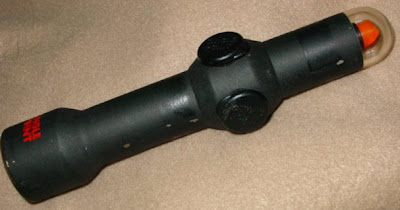How to reduce defense spending
The U.S. started out without a large standing army and with militia units under state authority, that could be transferred into federal service at need. The idea was to avoid the risks to liberty, and the expense, of having a lot of armed federal employees trampling about.
Militia defense is a robust system. No one fights harder than someone defending his own turf. We saw this, for example, in the Second World War. The Japanese defending Japanese territory, on Iwo Jima and Okinawa, were reported by those on our side to be the damnedest thing you ever saw. These Japanese were regulars, in a national army, not militia, but the feeling--as reported from their side--was it was now personal. Other examples, from other countries, may come to mind.
Switzerland has a good example of a modern militia system. Their stance has long been one of neutrality backed by good riflemen. It seems to have worked very well: They have managed to stay out of the wars for a long time, with obvious benefits. Peace and prosperity generally go hand in hand.
The drawback of this kind of system is it is no good for conducting large scale wars abroad. I do not see this as a great drawback, for the world has not exactly fallen over itself thanking America for our foreign wars. Going back to a militia system would require a shift in emphasis to territorial defense. That idea is perhaps a little bit scary, as it might lead to war in our own streets, not someone else's. But if we are really clever about it, like the Swiss, we are unlikely to need to fight. Their habits of being financially welcoming, politically neutral and stubbornly independent are things we might advantageously consider.
Militia defense is a robust system. No one fights harder than someone defending his own turf. We saw this, for example, in the Second World War. The Japanese defending Japanese territory, on Iwo Jima and Okinawa, were reported by those on our side to be the damnedest thing you ever saw. These Japanese were regulars, in a national army, not militia, but the feeling--as reported from their side--was it was now personal. Other examples, from other countries, may come to mind.
Switzerland has a good example of a modern militia system. Their stance has long been one of neutrality backed by good riflemen. It seems to have worked very well: They have managed to stay out of the wars for a long time, with obvious benefits. Peace and prosperity generally go hand in hand.
The drawback of this kind of system is it is no good for conducting large scale wars abroad. I do not see this as a great drawback, for the world has not exactly fallen over itself thanking America for our foreign wars. Going back to a militia system would require a shift in emphasis to territorial defense. That idea is perhaps a little bit scary, as it might lead to war in our own streets, not someone else's. But if we are really clever about it, like the Swiss, we are unlikely to need to fight. Their habits of being financially welcoming, politically neutral and stubbornly independent are things we might advantageously consider.


Comments
Post a Comment